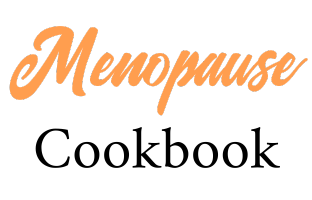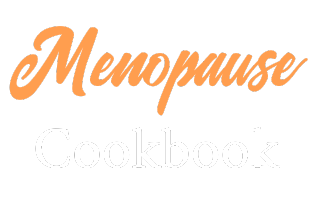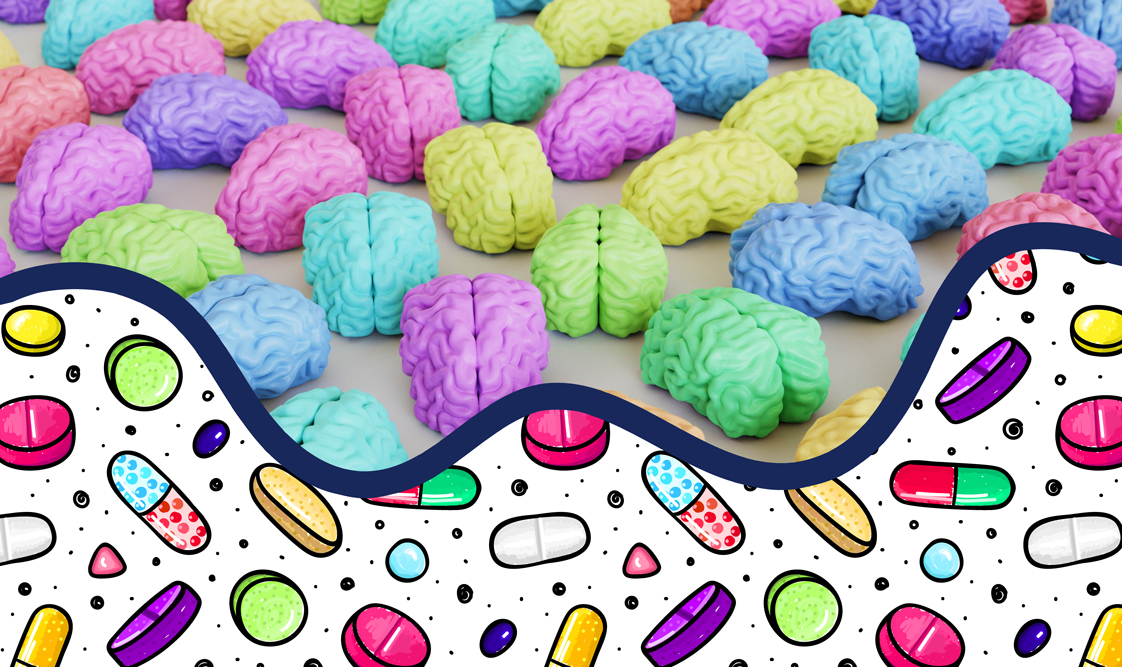I don’t know about you, but I am no longer a spring chicken. I remember the moon landing, pet rocks and bell-bottom blue jeans the first time they were popular. I can remember the first chapter book I ever read (Bambi) and the names of all my grade school teachers. So why can’t I remember the neighbor’s last name? I know they have told me, and they have lived there for over a year, but that memory escapes me. And don’t even get me started on remembering current movies. I have had far too many conversations that include questions such as “you know, the one about the woman who is a business executive having some kind of affair, starring that actress from Australia that used to be married to Tom Cruise?”
I am thinking many of you are nodding your head right now in solidarity. Thank you—you are my tribe! And for those of you who have not yet experienced this maturing of the brain’s memory processes, just wait. I am not wishing difficulties upon you, but we need to recognize that how the brain processes, stores and retrieves information changes as we age. Sometimes these changes are alarming, but they are not dementia and are not necessarily the beginnings of more severe brain changes. And there is almost always something we can do to make it better.
In fact, I tell people that we store information in filing cabinets in our brains and as we age, we store more and more information. Of course it takes more time to retrieve a memory, because we have to sort through so much material to find it! If you are 10 years old and have two filing cabinets, it is easy. If you are 80 years old and have five thousand filing cabinets, it is a lengthy process. But the truth is that we also may have some trouble with drawers getting stuck or files crumpled, and that complicates how our memory works.
The three biggest dangers to your brain are inflammation, oxidative stress and toxin exposure. These threats damage cells, causing improper replication, slowing repair and dramatically reduced function.
Lifestyle and the food we eat throughout our lives are a huge influence on our brain health. But there are also supplements that can help our brain function and slow mental decline. Some may even be preventative for Alzheimer’s disease and cerebrovascular accidents (CVA) or stroke.
Curcumin
The first botanical I think of for the brain is curcumin. It is the most powerful, all-around anti-inflammatory, and is a super antioxidant. Curcumin also boosts the liver’s ability to detoxify compounds and remove them from the body. Therefore, curcumin helps with each of the three biggest threats to your brain health. Animal studies have shown that curcumin can help dismantle beta amyloid plaques, which play a role in Alzheimer’s disease. A recent systematic review of 25 studies on curcumin found that it can reduce or even reverse memory impairment. Curcumin has also been shown to be beneficial for a wide variety of neurological problems.
Another exciting arm of research has investigated how curcumin can grow new brain cells. Replacing brain cells, a process called neurogenesis, is crucial for recovery from brain injury, stroke, multi-infarct dementia, major depression and Alzheimer’s disease. Curcumin stimulates the production of brain-derived neurotropic factor (BDNF) which in turn initiates neurogenesis.
A major risk factor for Alzheimer’s is a history of major depressive disorder (MDD), because high levels of inflammation and oxidative stress are implicated in both. Making sure that MDD is adequately treated is important for long term brain health. A type of curcumin called BCM-95 that is an enhanced bioavailability curcumin with turmeric essential oil has been used in three published human studies on MDD and found to be an effective treatment. One study compared BCM-95 curcumin to the prescription drug fluoxetine (one brand name is Prozac) and it was found they worked nearly equally as well, but with fewer side effects in the curcumin group.
It is important to note that this type of curcumin has been found to cross the blood brain barrier about 14 times better than plain curcumin, which is likely one reason for its excellent efficacy and use in a number of brain clinical trials.
Greek Mountain Tea
You might have to read that header again, because your brain read “green tea” when it is in fact “Greek tea.” This herb, called Sideritis scardica, is not well known in the U.S., but it is clinically studied and highly useful for ongoing brain function. Greek mountain tea, also called Shepherd’s Tea, originated in the mountainous areas of the Mediterranean. Shepherds made a hot beverage of the leafy botanical to combat mental fatigue and stay focused on the task at hand. Though Greek Mountain tea does not contain caffeine, it has been shown to increase mental vitality.
More recently, Greek mountain tea has been the focus of researchers who have developed placebo-controlled clinical trials for cognitive health. One placebo-controlled, double-blind study tested two dosages of a Greek mountain tea supplement (475 mg and 950 mg) against an inactive placebo and an active control of Ginkgo biloba (240 mg). Greek mountain tea showed significant benefits after only four weeks of use, including:
• Less anxiety in the higher-dose group
• Better accuracy and higher scores for processing visual info while under pressure.
• Improved circulation in the prefrontal cortex—the part of the brain involved in impulse control, learning and working memory. Ginkgo has also been used to help with slowing cognitive decline. Its mechanisms of action appear to be that it enhances circulation (ginkgo is a mild blood thinner) and alleviates oxidative stress with its antioxidant properties. However, in this study, the Greek mountain tea showed superior benefits. Although ginkgo showed some positive impact on accuracy under pressure, the results weren’t as significant as for Greek mountain tea. Ginkgo did not improve the sense of calm alertness that was reported in the Greek mountain tea group. Some researchers describe the benefits of Greek mountain tea as turning down the “noise” that interferes with our ability to concentrate, learn and remember.
In other published studies, Greek mountain tea was found to protect against the development of Alzheimer’s by decreasing beta amyloid formation and reducing the physical paralysis symptoms associated with Alzheimer’s disease. Greek mountain tea contains unique polyphenols and other nutrients that can invigorate mind and body. Research shows it also stops the growth of harmful bacteria and scavenges destructive free radicals, and clinical work continues to examine its effects on preserving cognitive and physical vitality.
Bacopa
Bacopa monnieri is an ayurvedic herb that has shown great promise for use in younger people with attention deficit disorder as well as in older people who need better attention, memory and speed of mental processing. Bacopa has been shown to improve accuracy and working memory, and helps people perform repetitive tasks successfully while under stress.
More recent investigation shows bacopa may even help create new and more efficient neural connections in the brain. Clinical research has shown that bacopa:
• Strengthens the speed of attention and overall cognitive abilities
• Alleviates both depression and anxiety in older adults
• Improves focus and behavior for children and adolescents with attention deficit conditions.
In individuals with mild cognitive impairment (MCI), which can be a precursor stage to Alzheimer’s, a combination of bacopa and Greek mountain tea was shown to increase beta wave activity in the brain, which is associated with memory and focus. Those taking the combination also scored better in memory, math and attention tests. Therefore, there is a case to be made for using these herbs in a protocol instead of individually, as they demonstrate synergistic benefits.
Conclusion
We have discussed some of my favorite botanicals for preventing brain disease and dementia, and for helping boost memory and focus regardless of age. There are many other elements that are crucial to cognitive health and clear thinking, including a clean diet, good amounts of physical activity, and making sure all nutrient needs are amply met. Did you know that sometimes a vitamin B12 deficiency can present as cognitive impairment or even dementia? Whatever you can do to take care of your body in turn takes care of your brain as well. That is why it is important to keep blood pressure and blood sugar in balance and do your best to get healthy, restorative sleep. If you do notice thinking or memory changes that are alarming, it is important to be evaluated by your health care practitioner, because so many cognitive challenges can be treated!VR
References:
Sanei M, Saberi-Demneh A. Effect of curcumin on memory impairment: A systematic review. Phytomedicine. 2019 Jan;52:98-106.
Banji D, Banji OJ, Srinivas K. Neuroprotective effect of turmeric extract in combination with its essential oil and enhanced brain bioavailability in an animal model. BioMed Res Int. 2021;(January):1-12.
Sanmukhani J, Satodia V, Trivedi J, Patel T, Tiwari D, Panchal B, Goel A, Tripathi CB. Efficacy and Safety of Curcumin in Major Depressive Disorder: A Randomized Controlled Trial. Phytother Res. 2013 Jul 6. doi: 10.1002/ptr.5025.
Lopresti AL, Maes M, Maker GL, Hood S, Drummond PD. Curcumin and major depression: A randomized, double-blind, placebo-controlled trial investigating the potential of peripheral biomarkers to predict treatment response and antidepressant mechanisms of change. European Neuropsychopharmacology. Dec. 5, 2014.
Lopresti AL, Maes M, Maker GL, Hood S, Drummond PD. Curcumin for the treatment of major depression: A randomised, double-blind, placebo-controlled study. J Affect Disord. 2014;167:368-375.
Garcia-Alloza M. Curcumin labels amyloid pathology in vivo, disrupts existing plaques, and partially restores distorted neurites in an Alzheimer mouse model. J Neurochem. 2007;102:1095-1104.
Yang F, Lim GP, Begum AN, et al. Curcumin inhibits formation of amyloid beta oligomers and fibrils, binds plaques, and reduces amyloid in vivo. J Biol Chem. 2005;280(7):5892-901.
Baum L, Lam CW, Cheung SK, et al. Six-month randomized, placebo-controlled, double-blind, pilot clinical trial of curcumin in patients with Alzheimer disease. J Clin Psychopharmacol. 2008 Feb;28(1):110-3.
Xu Y, Ku B, Tie L, Yao H, Jiang W, Ma X, Li X. Curcumin reverses the effects of chronic stress on behavior, the HPA axis, BDNF expression and phosphorylation of CREB. Brain Res. 2006 Nov 29;1122(1):56-64.
Huang Z, Zhong XM, Li ZY, Feng CR, Pan AJ, Mao QQ. Curcumin reverses corticosterone-induced depressive-like behavior and decrease in brain BDNF levels in rats. Neurosci Lett. 2011;493(3):145-8.
Aneva I, Zhelev P, Kozuharova E, Danova K, Nabavi SF, Behzad S. Genus Sideritis, section Empedoclia in southeastern Europe and Turkey – studies in ethnopharmacology and recent progress of biological activities. Daru. 2019 Jun;27(1):407-421.
Żyżelewicz D, Kulbat-Warycha K, Oracz J, Żyżelewicz K. Polyphenols and Other Bioactive Compounds of Sideritis Plants and Their Potential Biological Activity. Molecules. 2020 Aug 18;25(16):3763.
Wightman EL, Jackson PA, Khan J, Forster J, Heiner F, Feistel B, Suarez CG, Pischel I, Kennedy DO. The Acute and Chronic Cognitive and Cerebral Blood Flow Effects of a Sideritis scardica (Greek Mountain Tea) Extract: A Double Blind, Randomized, Placebo Controlled, Parallel Groups Study in Healthy Humans. Nutrients. 2018 Jul 24;10(8):955.
Knörle R. Extracts of Sideritis scardica as triple monoamine reuptake inhibitors. J Neural Transm (Vienna). 2012 Dec;119(12):1477-82.
Heiner F, Feistel B, Wink M. Sideritis scardica extracts inhibit aggregation and toxicity of amyloid-β in Caenorhabditis elegans used as a model for Alzheimer’s disease. PeerJ. 2018 Apr 30;6:e4683.
Dimpfel W, Biller A, Suliman S, Chiegoua Dipah G.N. Psychophysiological Effects of a Combination of Sideritis and Bacopa Extract (memoLoges) in 32 Subjects Suffering from Mild Cognitive Impairment. A Double-Blind, Randomized, Placebo-Controlled, 2-Armed Study with Parallel Design. Adv. Alzheimer’s Dis. 2016;5:103–125.
Żyżelewicz D, Kulbat-Warycha K, Oracz J, Żyżelewicz K. Polyphenols and Other Bioactive Compounds of Sideritis Plants and Their Potential Biological Activity. Molecules. 2020 Aug 18;25(16):3763. Xiao Y, Ren Q, Wu L. The pharmacokinetic property and pharmacological activity of acteoside: A review. Biomed Pharmacother. 2022 Sep;153:113296.
Khan RA, Hossain R, Roy P, Jain D, Mohammad Saikat AS, Roy Shuvo AP, Akram M, Elbossaty WF, Khan IN, Painuli S, Semwal P, Rauf A, Islam MT, Khan H. Anticancer effects of acteoside: Mechanistic insights and therapeutic status. Eur J Pharmacol. 2022 Feb 5;916:174699.
Jeremic I, Tadic V, Isakovic A, Trajkovic V, Markovic I, Redzic Z, Isakovic A. The mechanisms of in vitro cytotoxicity of mountain tea, Sideritis scardica, against the C6 glioma cell line. Planta Med. 2013 Nov;79(16):1516-24.
Tadić VM, Jeremic I, Dobric S, Isakovic A, Markovic I, Trajkovic V, Bojovic D, Arsic I. Anti-inflammatory, gastroprotective, and cytotoxic effects of Sideritis scardica extracts. Planta Med. 2012 Mar;78(5):415-27.
Kean JD, Downey LA, Stough C. A systematic review of the Ayurvedic medicinal herb Bacopa monnieri in child and adolescent populations. Complement Ther Med. 2016 Dec;29:56-62. doi: 10.1016/j.ctim.2016.09.002. Epub 2016 Sep 4. PMID: 27912958.
Kean JD, Downey LA, Stough C. Systematic Overview of Bacopa monnieri (L.) Wettst. Dominant Poly-Herbal Formulas in Children and Adolescents. Medicines (Basel). 2017 Nov 22;4(4):86. doi: 10.3390/medicines4040086. PMID: 29165401; PMCID: PMC5750610.
Kongkeaw C, Dilokthornsakul P, Thanarangsarit P, Limpeanchob N, Norman Scholfield C. Meta-analysis of randomized controlled trials on cognitive effects of Bacopa monnieri extract. J Ethnopharmacol. 2014;151(1):528-35. doi: 10.1016/j.jep.2013.11.008. Epub 2013 Nov 16. PMID: 24252493.
McPhee GM, Downey LA, Wesnes KA, Stough C. The Neurocognitive Effects of Bacopa monnieri and Cognitive Training on Markers of Brain Microstructure in Healthy Older Adults. Front Aging Neurosci. 2021 Feb 22;13:638109. doi: 10.3389/fnagi.2021.638109. PMID: 33692683; PMCID: PMC7937913.
Calabrese C, Gregory WL, Leo M, Kraemer D, Bone K, Oken B. Effects of a standardized Bacopa monnieri extract on cognitive performance, anxiety, and depression in the elderly: a randomized, double-blind, placebo-controlled trial. J Altern Complement Med. 2008 Jul;14(6):707-13. doi: 10.1089/acm.2008.0018. PMID: 18611150; PMCID: PMC3153866.
Stough C, Downey LA, Lloyd J, Silber B, Redman S, Hutchison C, Wesnes K, Nathan PJ. Examining the nootropic effects of a special extract of Bacopa monniera on human cognitive functioning: 90-day double-blind placebo-controlled randomized trial. Phytother Res. 2008 Dec;22(12):1629-34. doi: 10.1002/ptr.2537. PMID: 18683852.
Dimpfel W, Biller A, Suliman S, Chiegoua Dipah G.N. Psychophysiological Effects of a Combination of Sideritis and Bacopa Extract (memoLoges®) in 32 Subjects Suffering from Mild Cognitive Impairment. A Double-Blind, Randomized, Placebo-Controlled, 2-Armed Study with Parallel Design. Adv. Alzheimer’s Dis. 2016;5:103–125. doi: 10.4236/aad.2016.53008. – DOI.
Cheryl Myers is an integrative health nurse, author, and an expert on natural medicine. She is a nationally recognized speaker who has been interviewed by the New York Times, Wall Street Journal and Prevention magazine. Her many articles have been published in such diverse journals as Aesthetic Surgery Journal and Nutrition in Complementary Care, and her research on botanicals has been presented at the American College of Obstetrics and Gynecology and the North American Menopause Society. Myers is the head of scientific affairs and education for EuroPharma, Inc.




